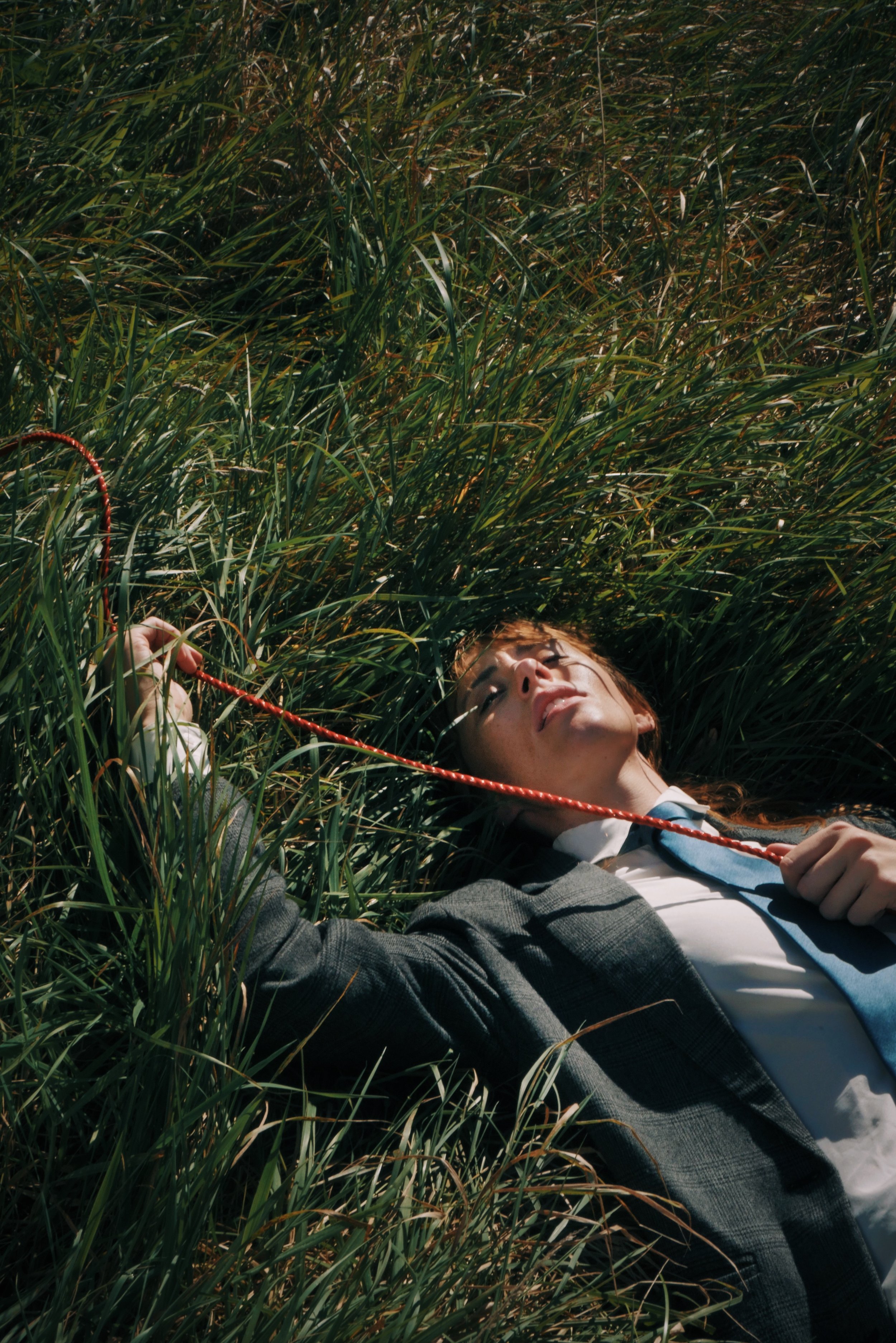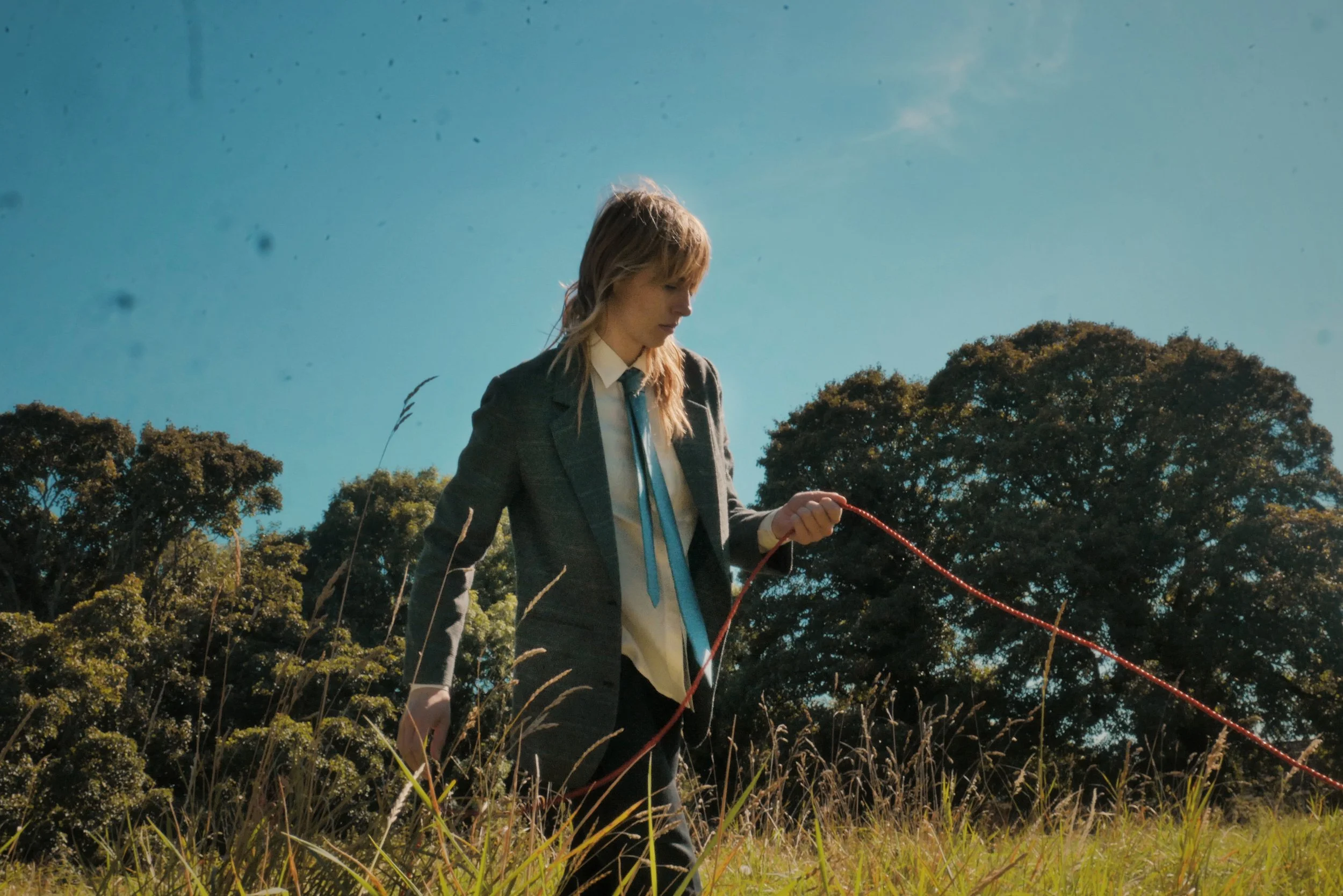Q&A: Reconnecting Through Music as Gordi and SOAK Embark on Their Collaborative Journey in ‘Lunch at Dune’
INTERVIEW
INTERVIEW
☆ BY SHEVON GREENE ☆
IN GORDI’S LATEST COLLABORATIVE EP — Lunch at Dune, created with Northern Irish folk artist SOAK, themes of grief, love, and loss of control take center stage, inspired largely by the impact of the COVID-19 pandemic. The EP showcases a tender reintroduction to Gordi's music, having taken a break during the pandemic to reprise her role as a doctor on the frontlines. This duality between her life in medicine and music shaped the emotional landscape of the project, giving her a fresh perspective that flows into her songwriting today.
The EP’s title track is a powerful and reflective piece, showcasing the vulnerability and strength in both artists’ voices as they navigate personal loss and queerness. Gordi’s signature folktronica sound blends seamlessly with SOAK’s raw, ethereal vocals, creating a sound that feels both wounded and healing. Through their collaboration, the pair craft a space where love, perspective, and connection are at the core. This EP captures not only the uncertainty of the pandemic but also a celebration of finding what truly matters. The Luna Collective sat down with Gordi to chat about the making of Lunch at Dune, her experiences as a frontline doctor during the pandemic, and how themes like grief, love, and queerness shaped her music. Read the full conversation below.
Credit: Nicola O’Reilly
LUNA: Lunch at Dune is a collaborative EP with SOAK. How did the idea for this project come about, and what drew you both to work together?
GORDI: The song “Lunch at Dune” is part of a bigger body of work that will be coming out next year, but the song really stood out to me. It’s a tender moment that I thought was a good way to reintroduce myself since I haven’t been putting out music for a while. I originally wrote it in London, just by myself as the pandemic was hitting in February 2020, in an Airbnb. The song transformed over a couple of years—I was in the studio with Brad Cook in Durham, North Carolina, and we brought the production together. I took the song back home to Melbourne and decided it needed another voice.
I’ve followed SOAK's work for such a long time. I think I first saw them play a show at a church in Sydney when they won the Mercury Prize for “Sea Creatures” about 10 years ago. We have a few mutual friends and had been DM-ing each other over the years. I hit them up and asked if they’d be interested in laying down vocals. They were driving through Portugal at the time, listening to the track, and they were like, "hell yeah." They recorded their vocals remotely, sent them over, and that’s how this song became the centerpiece of the EP. I wanted a few variations of the song on the EP, so I did a remix featuring SOAK and recorded a live version when I went to Dublin about a month ago. That was actually the first time we met in person, which was really sweet. We spent three days shooting the music video, hanging out, and recording a live video at our Airbnb, which had Irish countryside castle vibes.
LUNA: I love that! Hearing how far the song has come and how the project developed is amazing. The title track reflects on themes like grief, love, and loss of control, especially during the pandemic. How did your experiences as a doctor on the frontline during COVID-19 influence your songwriting for this project?
GORDI: The song “Lunch at Dune” is about giving someone perspective on what really matters. The pandemic put a lot of things into perspective for people—day-to-day minutia stopped mattering because everything was taken away from us: the ability to travel, see loved ones, or even leave our homes. Working in hospitals, I saw people facing real crises. It reinforced the point of the song, which is focusing on what truly matters.
LUNA: Music is such a powerful way to process those experiences. You’ve balanced a career in music with being a doctor. How has that duality shaped your perspective on creativity and life?
GORDI: It’s a funny balance. Over the years, my medical career has become less prominent. I’ve thought about the parallels between songwriting and working in hospitals, and I’ve realized that both are about connection. In both spaces, you’re telling a story in a way that the other person can understand. That connection is what drew me to medicine and continues to draw me to songwriting. There’s a certain electricity in both, whether it's with a patient or an audience.
LUNA: There’s a powerful emotional duality in the EP, with the music sounding both wounded and healing. How did you and SOAK approach blending your voices and stories to create that dynamic?
GORDI: I knew from the start that our voices would blend well. The textures of our voices complement and contrast each other in a nice way. When they sent their vocals over, I spent a lot of time finessing how they fit into the mix. The production was almost done, so it was about making the vocals marry together with the right EQs and reverbs. SOAK kindly let my original lyrics remain the focus of the story, but they still made it their own in a beautiful way.
LUNA: It's amazing how you two connected and brought it to life. The EP also touches on themes of queerness and personal reflection. How do these themes intertwine with the sonic landscape you and SOAK created?
GORDI: The themes of queerness come through naturally since we’re both proud members of the community. It’s woven into the stories we sing about. Sonically, I always layer a lot in my music and then strip things back. When I was in the studio with Brad, we added lots of synth parts, pedal steel, and guitar riffs, but when they combine, the idea was to create a lush world to get lost in. The song is ultimately about love, and I wanted the music to reflect that feeling of lying down in it.
Credit: Nicola O’Reilly
LUNA: I love the layering process, where you start with everything and then strip it back—it creates something special. You’ve carved out your own folktronica sound. How has this EP challenged or expanded your musical boundaries?
GORDI: My first record had a maximalist approach because it was my first time in a studio. My second record was the opposite, with just the bare minimum needed for the songs. I think this record strikes a nice middle ground. The arrangements are full, but I’ve learned the benefits of restraint. I’ve also leaned into matching the mood of the lyrics with the music more, creating a balance where everything echoes the meaning of the song.
LUNA: The pandemic forced many artists to slow down. What lasting impact has that time had on your music and life?
GORDI: One of the original songs on the EP, “Reverie,” was written during the deep pandemic times, and it reflects a longing to live life fully again. The main takeaway is gratitude—being back, playing shows, and traveling again. It’s a feeling I hold on to.
LUNA: Can you share any behind-the-scenes moments or creative processes that stood out during the making of Lunch at Dune?
GORDI: There are parts of the song that go all the way back to the first day I wrote it, noodling around on a guitar in a little writing room in Camden, London. I took the stems back to Melbourne, where I worked on the bridge the most—building up what we called the “warfare drums” and running my vocals through pedals to create that warped sound. Brad also brought in a pedal steel player and modular synth elements. When I revisited the stems recently, I realized how much of the song is made up of tiny elements. It’s truly the sum of its parts, and I’m proud of it.
LUNA: All those little pieces coming together must feel so rewarding. What do you hope listeners will take away from the themes of loss and healing on the EP?
GORDI: I hope they take away the sense of perspective—that life is about focusing on what really matters.
LUNA: How do you see this collaboration with SOAK influencing your future music?
GORDI: Collaborating is my favorite thing, and this project has definitely inspired me to seek out more of those opportunities. Collaborations often introduce listeners to new artists, which is great. Working with SOAK also reinforced the beauty of the voice as an instrument and how it can be used in its raw form or affected in various ways. I'm very grateful to SOAK for lending me theirs.



